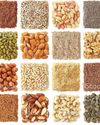
The export market for India's plant-based sector is projected to be significant by 2030, with the plant-based meat market expected to be larger than that of milk, as per a report by the Agricultural and Processed Food Export Development Authority (APEDA). The plant-based meat market is projected to range from $283 million to $880 million (Rs 2194 crore to Rs 6824 crore). Although the Indian plant-based meat market is currently in its nascent stage, it has already established its position in the market. The market is still small at around Rs 300 crore, but it has the potential to grow 8-10 times and reach Rs 3,500 crore by 2026. Let's take a closer look at the buoyant plant-based meat space.
In September 2022, Agricultural and Processed Food Products Export Authority (APEDA) facilitated the export of first consignment of plant-based meat products under vegan food category from Nadiad in Kheda district in Gujarat to California, the United States of America (USA) in a move to boost exports of unique agricultural processed food products. The first shipment has vegan food products like momos, mini samosas, patties, nuggets, spring rolls, burgers, etc. The shipments were exported by Greennest and Wholesome Foods.
Stressing on exploring new foreign destinations, APEDA Chairman, Dr M Angamuthu said that APEDA is working towards promotion of plant-based meat products in a big way without disturbing the conventional animal-based meat export market. The APEDA has planned to promote a variety of vegan foods products, including pancake, snacks, cheese, etc, to the countries of Australia, Israel, New Zealand and others in coming months.
This story is from the {{IssueName}} edition of {{MagazineName}}.
Start your 7-day Magzter GOLD free trial to access thousands of curated premium stories, and 9,000+ magazines and newspapers.
Already a subscriber ? Sign In
This story is from the {{IssueName}} edition of {{MagazineName}}.
Start your 7-day Magzter GOLD free trial to access thousands of curated premium stories, and 9,000+ magazines and newspapers.
Already a subscriber? Sign In

"Arunachal holds tremendous scope for agro-food processing industries, especially in horticulture"
Arunachal Pradesh has an agriculture based economy where more than 70 per cent population is dependent on agriculture for their livelihood. As the state is endowed with enormous natural resources and suitable agro-climatic zones, the sector therefore, continues to be central to all strategies for the state's planned socio-economic development. Gabriel D Wangsu, Minister, Agriculture and Allied Sectors, Government of Arunachal Pradesh, at the recently-held 15th Agrovision 2024, spoke with AgroSpectrum on the various initiatives to boost rapid growth of agriculture sector of the state, aimed at achieving self-reliance, household food security and forging equity in income wealth distribution to rapidly reduce poverty. Edited experts;

How Biological Solutions are leading the way in Asia Pacific.
The global agriculture sector is about to enter a new era. The increase in water crises, soil degradation, and pesticide pollution is alarming.

Unlocking full potential Agri-warehousing industry to contribute to agricultural growth
India's agricultural value chain relies heavily on agri-warehousing to bridge the gap between yearround distribution and seasonal crop supply. Through the use of sustainable practices, innovation, and investment encouragement, the agri-warehousing sector may realise its full potential and make a substantial contribution to India's agricultural growth narrative.

Fruit export industry to witness unparalleled expansion with customer-focused mindset
With its extensive fruit production base and improvements in quality control, India is in a strong position to increase its market share internationally. Through the adoption of these trends and the utilisation of its innate advantages, the Indian fruit export industry might potentially achieve unparalleled expansion and make a substantial contribution to the global food chain. 2025 will see a dynamic fruit export business characterised by innovation, sustainability, and a customer-focused mindset.

The blooming Floriculture business
The floriculture market is growing due to a number of causes, including the development of organised retail and e-commerce platforms nationwide, the increase in government programmes and regulations promoting floriculture, and the ongoing improvements in agricultural methods and technology. In 2024-2032, the Indian floriculture industry is expected to increase at a compound annual growth rate (CAGR) of 11.4 per cent, up from Rs 26,210 crore in 2023, according to IMARC Group.

Agritech driving a resilient and thriving agricultural future
India's agriculture, which is the backbone of the entire economy, is undergoing a major change, which includes the use of advanced technologies.

Agritech poised to redefine agriculture in India
Despite the enormous potential of the agritech industry, issues like lack of knowledge, fragmented land ownership, and digital literacy still exist. But thanks to initiatives and rising smartphone adoption, startups are getting beyond these obstacles to spur innovation and growth. By 2025, Indian agritech companies will have resolved current agricultural problems and established a standard for the global agritech industry.

Building a resilient Edible Oil Seed ecosystem with long-term strategic goals.
India is a major producer of oilseeds, but its average yield is much lower than the global standard. In order to meet its domestic demand, India imports edible oil at a cost of around $16 billion a year. The industry can achieve sustainable growth and adjust to a constantly shifting global environment with careful planning and focused execution.

High protein to drive Poultry sector growth
Urbanisation, increased wages, and consumer preferences for high-protein diets are all predicted to contribute to the 9 per cent growth in the Indian poultry industry in 2025. A rapidly growing sector of the Indian agricultural economy, the poultry industry provides the nation with affordable, high-quality protein.

Innovative production techniques to boost Fisheries productivity
The Indian economy depends heavily on the fishing industry.